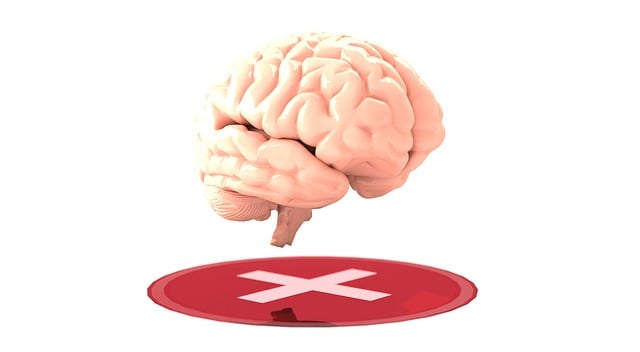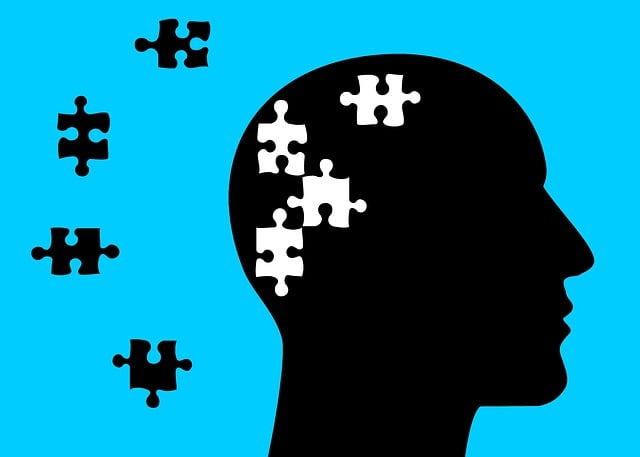The pervasive stigma surrounding mental illness deeply impacts individuals, leading to social isolation, limited access to care, and increased suicide rates. Broomfield Play Therapy offers a dynamic approach by providing supportive environments through play, art, and music for children and youth to express emotions, reducing stigma. Educational programs tailored for younger audiences debunk stereotypes and promote empathy, cultivating an inclusive community. Initiatives like workshops, podcasts, and self-care practices further reach diverse audiences, while policy changes ensure accessibility in mental healthcare. Personal narratives, shared through storytelling, humanize struggles and foster empathy, contributing to broader Mental Health Awareness.
Mental illness stigma remains a pervasive challenge, impacting individuals’ well-being and society as a whole. This article explores comprehensive efforts to reduce this barrier in Broomfield through diverse initiatives. We delve into understanding the roots of mental health stigma, highlighting its profound impact. Key strategies discussed include the therapeutic power of play therapy in Broomfield, educational awareness campaigns, policy changes advocating for systemic reform, and empowering personal narratives that break free from stigma’s grip.
- Understanding Mental Illness Stigma: Its Impact and Roots
- The Role of Play Therapy in Combating Stigma in Broomfield
- Educational Initiatives:Spreading Awareness in the Community
- Policy Changes: A Systemic Approach to Reducing Stigma
- Personal Stories: Sharing to Break Free from Stigma's Grip
Understanding Mental Illness Stigma: Its Impact and Roots

Stigma surrounding mental illness is a pervasive issue that has deep roots in societal perceptions and historical contexts. It often manifests as prejudice, discrimination, or negative attitudes towards individuals experiencing psychological distress, hindering their ability to seek help and support. This stigma can have severe consequences on an individual’s life, leading to social isolation, reduced access to quality care, and even increased rates of suicide. Understanding the impact of stigma is crucial in developing effective reduction strategies.
The roots of mental illness stigma trace back to ancient times when psychological disorders were often attributed to supernatural causes or viewed as moral failings. These historical perspectives have contributed to the development of societal beliefs that still persist today, creating a culture where mental health concerns are stigmatized. Broomfield Play Therapy, for instance, recognizes these challenges and aims to foster emotional healing processes by providing a supportive environment where individuals can express themselves freely. Incorporating practices such as Mindfulness Meditation into therapy sessions has been shown to be beneficial in reducing stigma by promoting self-awareness and understanding. Mental Health Education Programs Design that focus on raising awareness, challenging stereotypes, and fostering empathy are essential steps towards creating a more accepting society.
The Role of Play Therapy in Combating Stigma in Broomfield

In Broomfield, Play Therapy is emerging as a powerful tool to combat stigma surrounding mental illness and foster an environment of understanding and acceptance. This therapeutic approach leverages play, art, music, and other creative means to engage children and youth, making it an accessible gateway to discussing emotional and psychological well-being. By incorporating elements of Mental Health Education Programs Design tailored for younger audiences, Play Therapy helps dispel misconceptions and promotes empathy, fostering a more inclusive social atmosphere in the community.
The sessions are designed not only to improve social skills through training but also to enhance cultural sensitivity in mental healthcare practice. This dual focus ensures that participants gain insights into diverse perspectives on mental health while developing crucial interpersonal competencies. The result is a generation more equipped to challenge stigma and offer support to peers facing mental health challenges, thereby transforming Broomfield’s societal landscape with increased cultural awareness and compassion.
Educational Initiatives:Spreading Awareness in the Community

Educational initiatives play a pivotal role in stigma reduction efforts for mental illness. One effective strategy is spreading awareness through community outreach programs, such as Broomfield Play Therapy’s therapy sessions and workshops. These initiatives foster open conversations about mental health, promoting understanding and empathy among diverse populations. By integrating interactive activities and educational resources, they help demystify various mental conditions, challenging societal misconceptions and stereotypes.
Incorporating these efforts into the community extends beyond events; it includes multimedia components like the Mental Wellness Podcast Series Production, which leverages audio content to reach broader audiences. Additionally, Inner Strength Development workshops empower individuals with coping mechanisms and resilience-building techniques, emphasizing self-care practices. Even Risk Management Planning for Mental Health Professionals benefits from these educational initiatives, ensuring practitioners have the tools to navigate challenges while maintaining ethical standards and delivering quality care.
Policy Changes: A Systemic Approach to Reducing Stigma

Mental illness stigma reduction often requires a systemic shift, and policy changes play a pivotal role in this transformation. At the heart of this approach lies the recognition that mental health is integral to overall well-being, and thus, policies should reflect this understanding. This means reevaluating existing laws and guidelines to ensure they promote accessibility and confidentiality in mental healthcare. For instance, implementing legislation that mandates insurance coverage for Broomfield Play Therapy and similar therapeutic methods can make these services more accessible to the community.
A comprehensive strategy might involve collaborating with local governments and healthcare providers to develop programs aimed at reducing stigma. Community Outreach Programs can educate residents, dispel misconceptions, and foster a culture of support. Incorporating self-awareness exercises and conflict resolution techniques in these initiatives can empower individuals to better understand and empathize with those facing mental health challenges. Such systemic efforts are crucial in breaking down barriers and creating an environment where everyone feels comfortable seeking the help they need.
Personal Stories: Sharing to Break Free from Stigma's Grip

Personal stories have proven to be a powerful tool in the fight against mental illness stigma. When individuals openly share their experiences with conditions like anxiety, depression, or trauma—whether through writing, art, or direct conversation—it helps to humanize mental health struggles and break down barriers of understanding. This act of sharing can foster empathy and challenge societal misconceptions, allowing others to see beyond the illness and appreciate the person behind it.
In Broomfield Play Therapy sessions, therapists encourage clients to express themselves through creative means, including storytelling. By sharing their journeys, individuals can build resilience, gain a sense of control, and contribute to broader Mental Health Awareness. Moreover, culturally sensitive practices within mental healthcare, such as those promoted in our services, ensure that personal stories are shared in safe, supportive environments, fostering authentic connections and meaningful changes.
Mental illness stigma reduction is a multifaceted effort that requires understanding, education, policy changes, and personal storytelling. As seen in Broomfield through innovative Play Therapy, community engagement and awareness are key components in combating stigma. Educational initiatives play a vital role in spreading knowledge and breaking down barriers. Policy changes at a systemic level further ensure equal access to mental health support. By combining these strategies, we can create an environment where individuals experiencing mental illness feel supported and empowered, ultimately fostering a more inclusive society.














